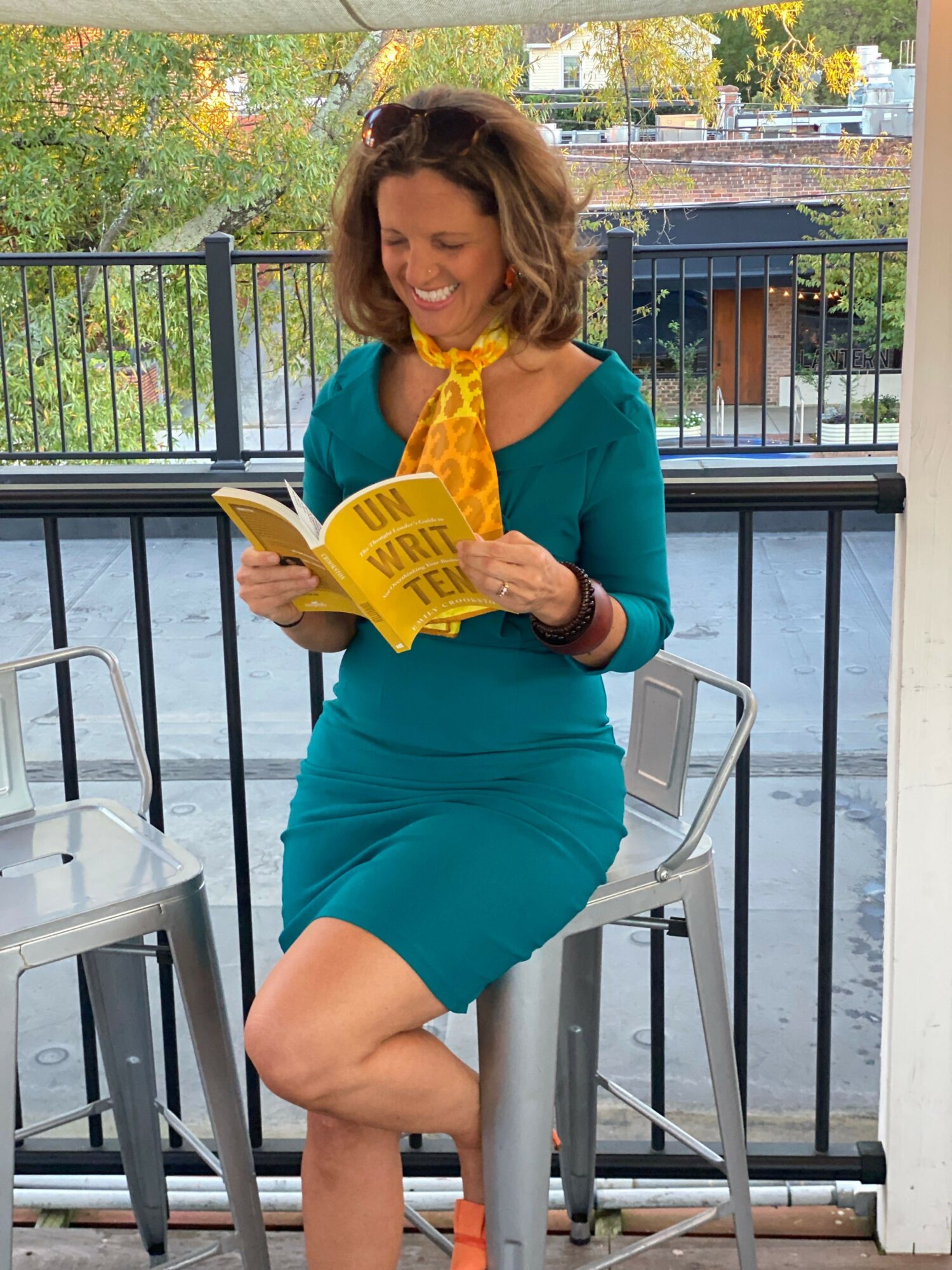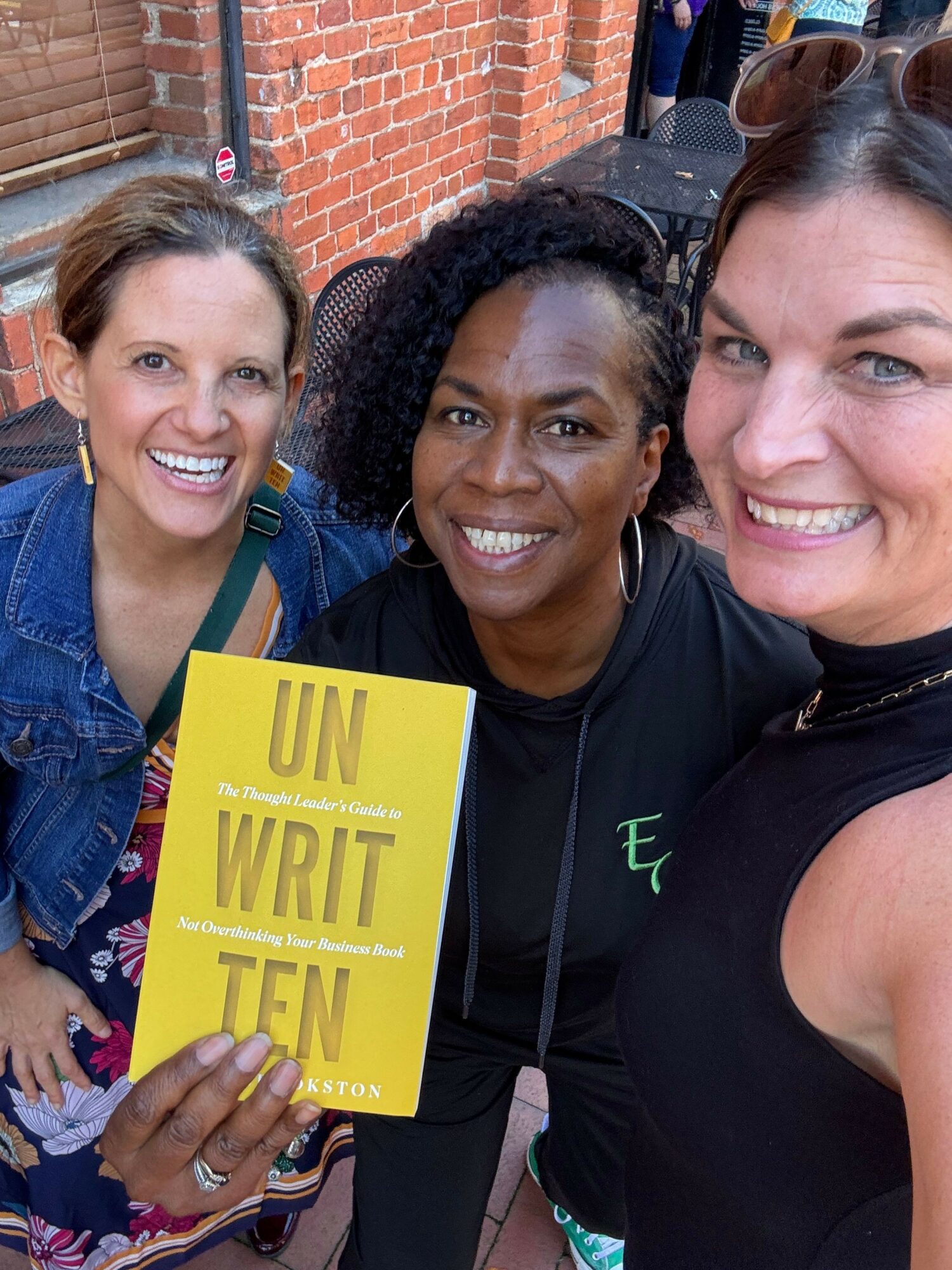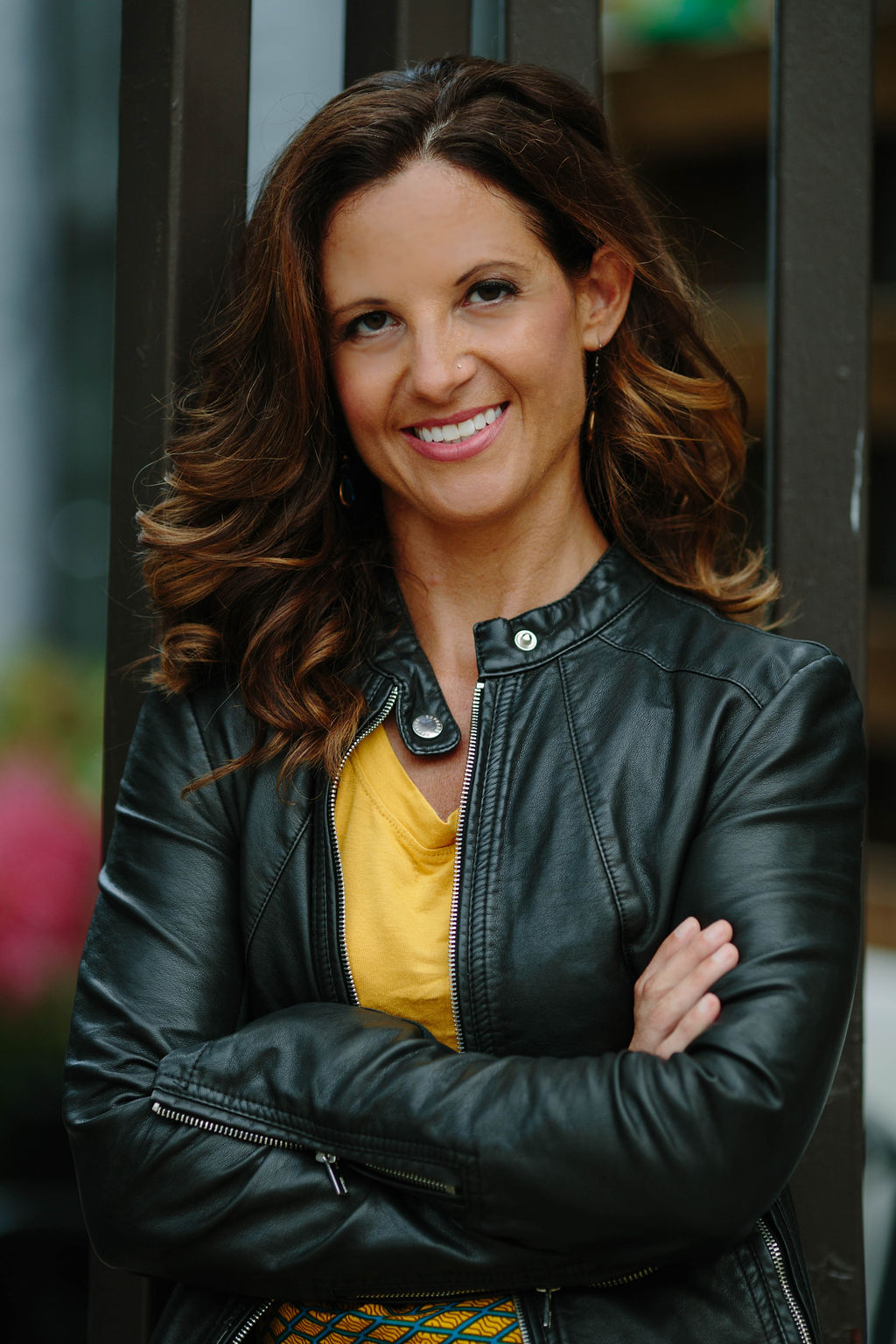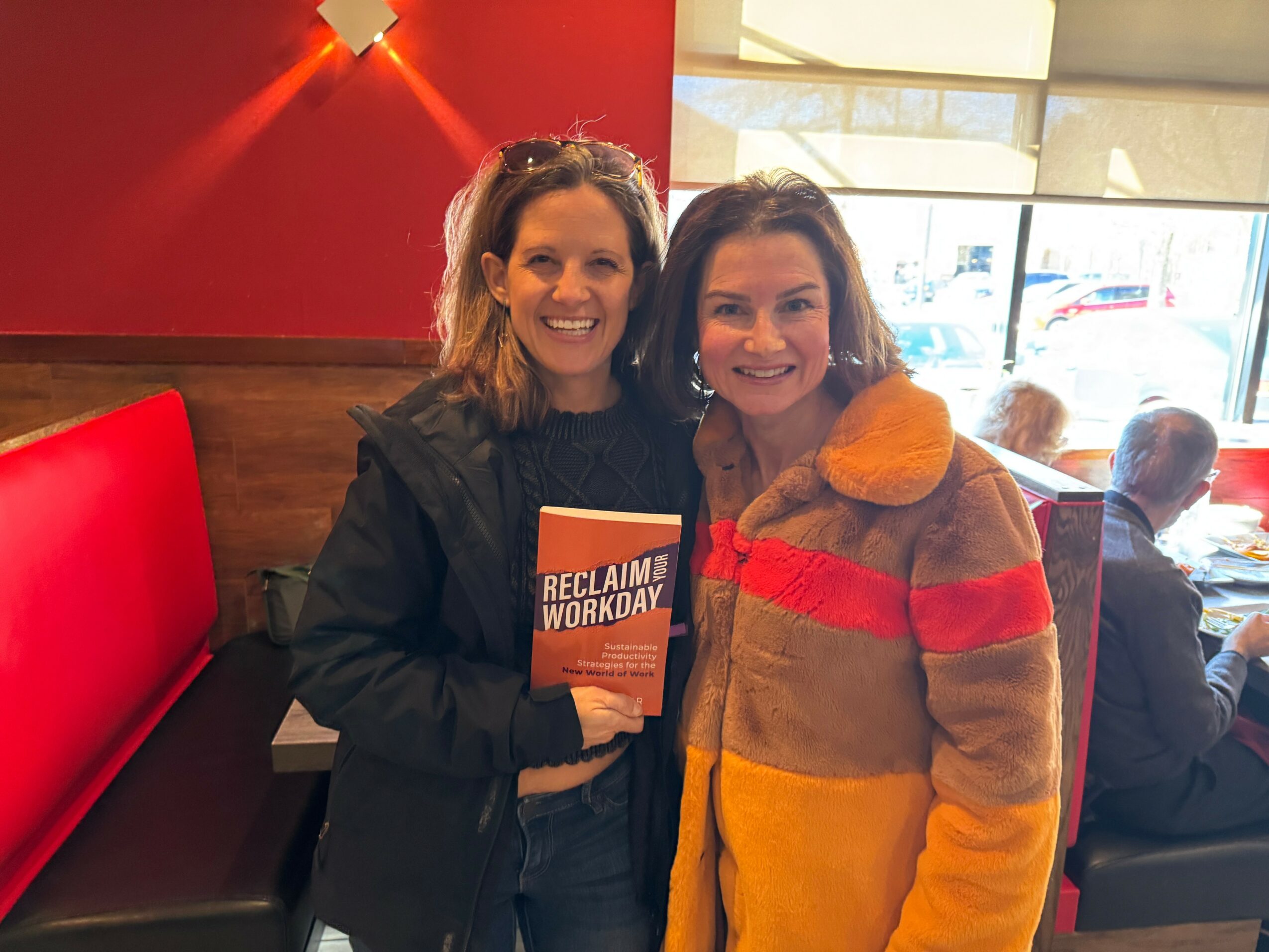

Today we’d like to introduce you to Emily Crookston.
Hi Emily, so excited to have you with us today. What can you tell us about your story?
My journey to becoming a business book ghostwriter has been anything but linear. I started my career in academia as a philosophy professor. I earned my PhD and spent 7 years teaching students how to take apart arguments, examine them from different angles, and rebuild them from the ground up. This training fundamentally reshaped how I think about ideas and communication.
However, academia wasn’t ultimately where I was meant to be. As I like to say, I got “chewed up and spit out by the soul-crushing machine that is the academic job market.” That challenging experience pushed me to leap from the ivory tower and into the business world, where I started The Pocket PhD in 2015.
In the beginning, I wasn’t entirely sure what my business would look like. I just knew I had valuable skills in writing, analysis, and translating complex ideas into accessible language. My first clients were mostly business owners who needed help with their content marketing—blog posts, articles, and website copy.
Over time, I noticed a pattern. Many of my clients were accomplished experts with big, innovative ideas, but they struggled to get those ideas out of their heads and onto paper in a way that would resonate with their audiences. Some dreamed of writing books but couldn’t find the time between running their businesses and serving their clients.
That’s when I found my niche as a ghostwriter for business books. I developed a collaborative process where I meet with clients weekly, immersing myself in their expertise and voice. Unlike traditional ghostwriting, which can sometimes feel transactional, I approach each project as a thought partnership.
Today, I’ve ghostwritten more than 20 books, edited more than 10, and recently published my own, “Unwritten: The Thought Leader’s Guide to Not Overthinking Your Business Book.” Even before you write a book, you need to start thinking about your content in an intentional way. You need to understand your own voice and discover your unique angle. So I also help innovative thinkers cultivate what I call their “thought leadership ecosystem”—connecting all their content pieces with a dynamic strategy that takes into account distribution, audience, and business goals.
What drives me is helping experts own their expertise. There’s nothing more satisfying than watching a client use their book to land speaking gigs, raise their consulting fees, or reach entirely new audiences. That transformation—from subject matter expert to what I call a “big idea expert”—is what makes all the hard work worthwhile.
Would you say it’s been a smooth road, and if not what are some of the biggest challenges you’ve faced along the way?
I would LOVE to meet the business owner who says it has been a smooth road! I would be immediately suspicious that they are a bot or something. When I left academia and started The Pocket PhD, I faced several significant challenges that tested my resolve.
The first major hurdle was simply learning how to run a business. My PhD prepared me to analyze complex philosophical arguments, but it didn’t teach me about setting up systems, pricing my services, or finding clients. I had to quickly educate myself on everything from building a website to marketing and business development strategies. The learning curve was steep, and there were many nights I wondered if I should just find a job, any job (outside of academia).
Another significant challenge was impostor feelings. Despite my academic credentials and writing skills, I often doubted whether I had what it took to help business owners and thought leaders. There was a whole world of corporate speak, and I was a total outsider. When I began ghostwriting books, this feeling intensified. Who was I to write someone else’s book? Overcoming these feelings of inadequacy took time and required me to recognize that my ability to translate complex ideas into accessible language was indeed valuable.
Perfectionism was another obstacle I had to overcome. My academic training had taught me to polish every sentence until it gleamed, but this approach proved disastrous for writing books. I had to learn to embrace what I call the “messy first draft”—getting ideas on paper quickly and fixing them later. This shift in mindset was crucial for my success as a ghostwriter and for helping my clients avoid the same trap.
Finding my niche was also challenging. I started out writing all kinds of content—blog posts, website copy, academic articles—before realizing that business book ghostwriting was where I could provide the most value. Narrowing my focus was scary because it meant turning down projects, but it ultimately allowed me to develop a specialized expertise and become a lighthouse for the best clients.
These struggles taught me valuable lessons that I now share with my clients. The road hasn’t been smooth, but each bump and detour has helped shape The Pocket PhD into what it is today.
Thanks for sharing that. So, maybe next you can tell us a bit more about your business?
The Pocket PhD is a specialized ghostwriting and thought leadership development company that helps entrepreneurs, consultants, and experts turn their big ideas into business books. I’m not just a ghostwriter—I’m an idea translator and thought partner who helps business owners cultivate what I call their “thought leadership ecosystem.”
What sets me apart is my unique approach to the business book writing process. Most books about writing are written by writers for other writers. I’m a business owner first. I work specifically with busy business owners who have expertise but may not identify as writers. I understand that writing a book while running a business presents unique challenges, so I’ve developed a streamlined process that makes it manageable.
I follow a collaborative 16-week process that takes a book from outline to complete, publishable manuscript. I meet with clients weekly to capture their voice and ideas, then transform those conversations into compelling prose that sounds exactly like them on their best writing day. I only work on one book at a time, allowing me to fully immerse myself in each client’s world and expertise. It’s a bit like method acting.
My other differentiator is that I focus on the ROI of writing a book as a business owner. Before I begin any project, I ask clients, “What’s the business case for your book?” I help them see how their book fits into their larger business goals—whether that’s landing speaking gigs, generating leads, or establishing authority in their field.
My philosophy is that most business book authors make the mistake of overthinking the writing and underthinking everything else. They spend years perfecting their manuscript but neglect positioning, publishing, and promoting—the elements that determine whether a book succeeds as a business tool. I encourage clients to think through all these aspects and I share resources to help guide them.
I’m most proud of my ability to maintain the author’s authentic voice while making their ideas accessible to readers. There’s something magical about that “mind meld” when an author can’t distinguish which parts they wrote and which parts I wrote. It’s that seamless integration that makes our books especially effective.
For business owners considering writing a book, I want them to know it doesn’t have to be a years-long slog. With the right approach, you can write your book in months, not years, and create something that genuinely serves your business rather than just sitting on a shelf. That’s the transformation I help my clients achieve.
Risk taking is a topic that people have widely differing views on – we’d love to hear your thoughts.
Leaving academia to start my own business was unquestionably the biggest risk I’ve taken in my professional life. When I founded The Pocket PhD, I was stepping away from a career path I’d spent nearly two decades pursuing, with no guarantee that entrepreneurship would work out. It meant walking away from the security and clear path of academia into the unknown world of business ownership.
At the time, it felt risky, but I’ve come to view risk differently than I once did. I think about risk as a calculation between what you might lose and what you might gain. In academia, I was facing limited opportunities, geographical constraints, and work that wasn’t fully aligned with my values. The “safe” path actually felt increasingly risky to my long-term happiness and fulfillment.
Starting my ghostwriting business, on the other hand, offered unlimited potential. Yes, I might fail—but I could also create something that perfectly aligned with my strengths and values. I’ve discovered that when you’re operating from your zone of genius, what others see as “risky” often feels like the most natural path forward.
Another risk I took was specializing specifically in business books rather than offering a broader range of writing services. Conventional wisdom suggests that narrowing your focus means turning away potential clients. But I found that specialization actually attracted more of the right clients—those who valued my specific expertise in translating complex business ideas into compelling books.
Now, I’m about to take another risk. A friend and I are working on a new business idea marrying our strengths to help others see AI as full of possibilities, instead of worrying that the bots are going to take their jobs. I haven’t felt this excited or energized about a new idea in a long time. I’m excited to see what we come up with.
I believe entrepreneurship requires a healthy relationship with risk. It’s not about being reckless, but about making calculated decisions based on your unique strengths, values, and goals. Sometimes what appears to be the safest choice—staying in a stable but unfulfilling job, for example—is actually the riskiest in terms of your long-term happiness and success.
The most important thing I’ve learned about risk is that it reveals what matters most to you. When you’re clear about your values and what you want to create in the world, taking aligned risks becomes less scary and more exciting. It’s about asking, “What’s the cost of not taking this risk?” rather than just “What might I lose?”
Contact Info:
- Website: https://thepocketphd.com
- LinkedIn: https://www.linkedin.com/in/emilycrookston/




















